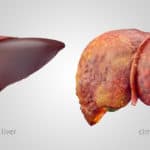HCV Genotype 1 Viral Loads Decline
Favourable Six Months Follow-Up Results From Intercell’s Phase II Therapeutic Hepatitis C Program
– Long term follow up results from chronically infected Hepatitis C patients strongly confirm and exceed positive data obtained earlier in 2008 – Study is the first to show a statistically significant and long-term antiviral effect of therapeutic Hepatitis C vaccination – Data pave the way and strongly support move into a second generation vaccine formulated with Intercell’s adjuvant IC31(R) acting through TLR activation
VIENNA, Austria, Sept 03, 2008 /PRNewswire via COMTEX/ — Today, Intercell AG (ICLL) announced the six months follow up data of its exploratory clinical Phase II study targeting treatment-naive Hepatitis C genotype-1 patients. As previously reported in February 2008, in this trial the therapeutic Hepatitis C vaccine (IC41) comprising five synthetic T-cell peptides and Intercell’s first-generation poly-Arginine adjuvant (IC30) disclosed a statistically significant reduction of viral load in the blood of chronically infected patients up to 2 weeks after the last vaccination. The current long term follow up results show that this reduction was significantly more pronounced at six months after the final vaccination.
In the open label controlled multicenter Phase II study 50 genotype-1 patients, naive to standard treatment were enrolled for receiving a treatment schedule consisting of 8 intra-dermal IC41 vaccinations in biweekly intervals with topical application of the Toll-like receptor (TLR) agonist imiquimod. The previous analysis of 46 patients at 2 weeks after the last vaccination with IC41 showed already a statistically significant (p=0.001) HCV RNA decline of 0.2 log. The present follow-up data from 33 patients at six months after end of IC41 vaccination revealed an even greater viral load decline of 0.46 log (p=0.001). Interestingly, the virus decline (0.6 log) at the six months time point was most pronounced in patients with high initial viral load (> 2 million copies/ml). A parallel study arm conducted in 21 treatment-naive patients where the imiquimod application was omitted, did not show a significant reduction of the viral load. Thus the results strongly support the notion that the future co-administration of a TLR adjuvant, like IC31(R), is pivotal for the therapeutic effect of the vaccine.
“Our study is the first report to show significant long-term viral load effects of therapeutic vaccination. In particular the increasing RNA decline up to 6 months after vaccination is extremely encouraging and finally suggests the formulation of our vaccine with IC31(R), a strong TLR agonist. Furthermore our vaccine in future trials may be combined with standard therapy or novel antivirals.” states Alexander von Gabain, Chief Scientific Officer of Intercell.
Although options for the treatment of chronic Hepatitis C with Interferon/Ribavirin have improved, treatment will remain very difficult and a significant unmet medical need, especially in the case of Genotype 1. Novel immunotherapies, and possibly therapeutic vaccines, might become an option in the arena of existing and future HCV combination treatments. Thus, Intercell will follow its development strategy that will also take advantage of an enlarged antigen portfolio and of IC31(R), Intercell’s second-generation adjuvant that has recently demonstrated the generation of T-cell responses, in human vaccine trials, to a level not yet seen for other known adjuvants.
About Hepatitis C
HCV is a major cause of chronic liver disease, including cirrhosis and liver cancer. According to the World Health Organization (WHO), approximately 170 million people worldwide are chronic HCV carriers (3% of the world’s population), including about 10 million Europeans, 3.9 million Americans and 2 million Japanese. 35,000 new infections occur in the United States alone each year. The substantial unmet medical need is underscored by the fact that each year 8,000 to 10,000 deaths and 1,000 liver transplants in the United States are due to HCV.
Currently, there is no vaccine against Hepatitis C available, and the infection can only be treated with a combination of Interferon and Ribavirin — a long-term therapy with limited efficacy and substantial side effects. It also gives rise to high treatment costs for patients. In 2002, worldwide sales of HCV drugs totalled around EUR 2.8bn, and demand has since grown significantly. The market has been seen to expand to about EUR 3.5bn by 2006.
About Intercell AG
Intercell AG is a growing biotechnology company that designs and develops novel vaccines for the prevention and treatment of infectious diseases with substantial unmet medical needs. The Company’s technology platforms include an antigen-discovery system, two proprietary adjuvants and a novel patch-based delivery system. Based on these technologies, Intercell has strategic partnerships with a number of global pharmaceutical companies, including Novartis, Merck & Co., Inc., Wyeth, Sanofi Pasteur, Kirin and the Statens Serum Institut.
The Company’s lead product is a vaccine against Japanese Encephalitis. That vaccine successfully concluded pivotal Phase III clinical trials in 2006, and Intercell is seeking marketing approval in the United States, Europe, Australia and Canada. Approval in those markets is anticipated during the second half of 2008.
The Company’s development pipeline includes Phase II vaccine programs for Pseudomonas (in-house development) and S. aureus, which is being developed with Merck & Co. Inc. The Company’s novel Travelers’ Diarrhea vaccine patch will enter Phase III testing in 2009. Intercell is also in clinical trials of a vaccine enhancement patch with injected pandemic influenza vaccines (one shot plus patch). In addition, five other products focused on infectious diseases are in preclinical development.
Intercell is listed on the Vienna stock exchange under the symbol “ICLL”.
For more information, please visit: http://www.intercell.com
This communication expressly or implicitly contains certain forward-looking statements concerning Intercell AG and its business. Such statements involve certain known and unknown risks, uncertainties and other factors which could cause the actual results, financial condition, performance or achievements of Intercell AG to be materially different from any future results, performance or achievements expressed or implied by such forward-looking statements. Intercell AG is providing this communication as of this date and does not undertake to update any forward-looking statements contained herein as a result of new information, future events or otherwise.
SOURCE Intercell AG
http://www.intercell.com
Copyright (C) 2008 PR Newswire. All rights reserved End of Story
URL for article source:
http://www.marketwatch.com/news/story/favourable-six-months-follow
-up-results/story.aspx?guid=%7B157839DE-3B3E-4FF4-AB69-EB9EE125BF57%
7D&dist=hppr







